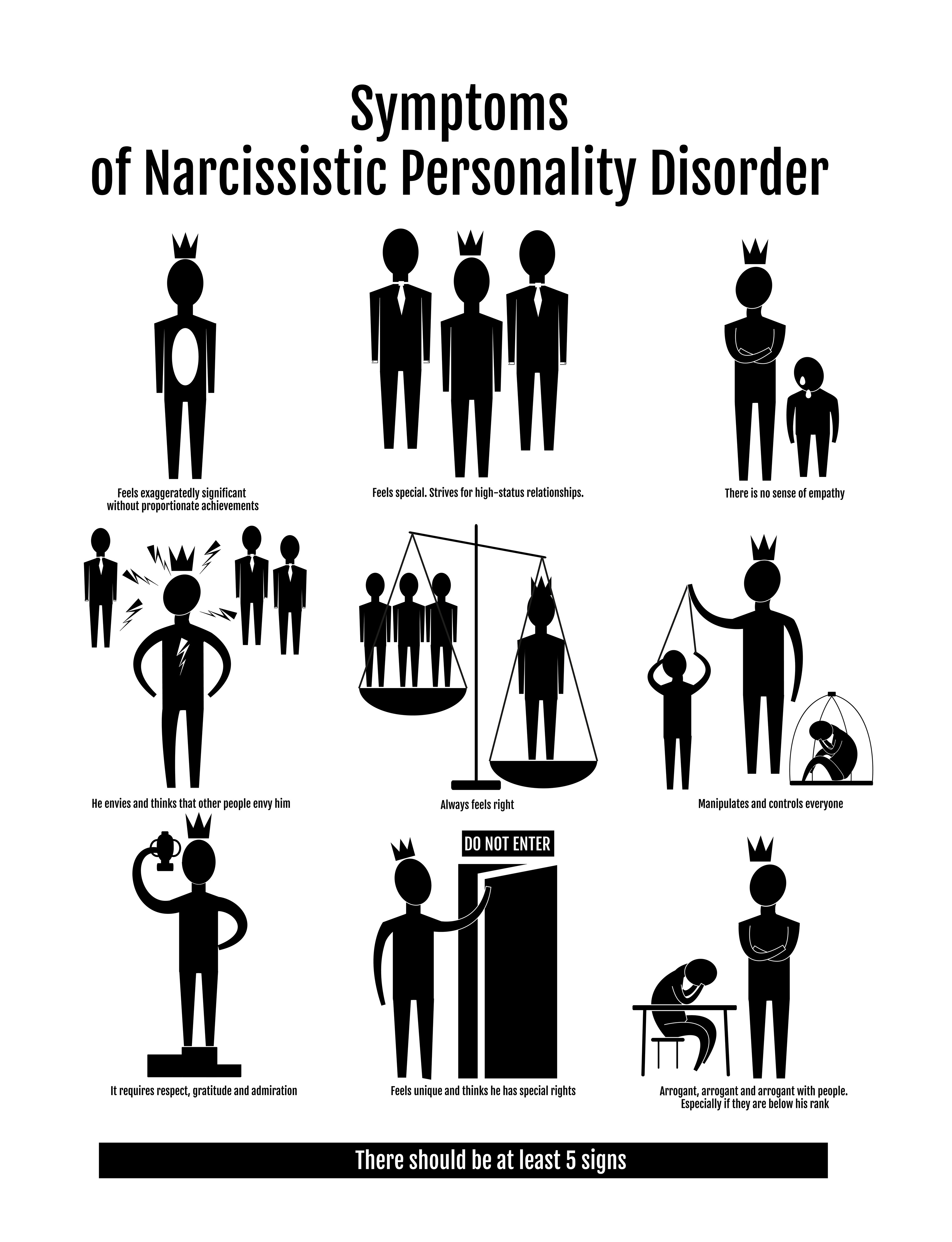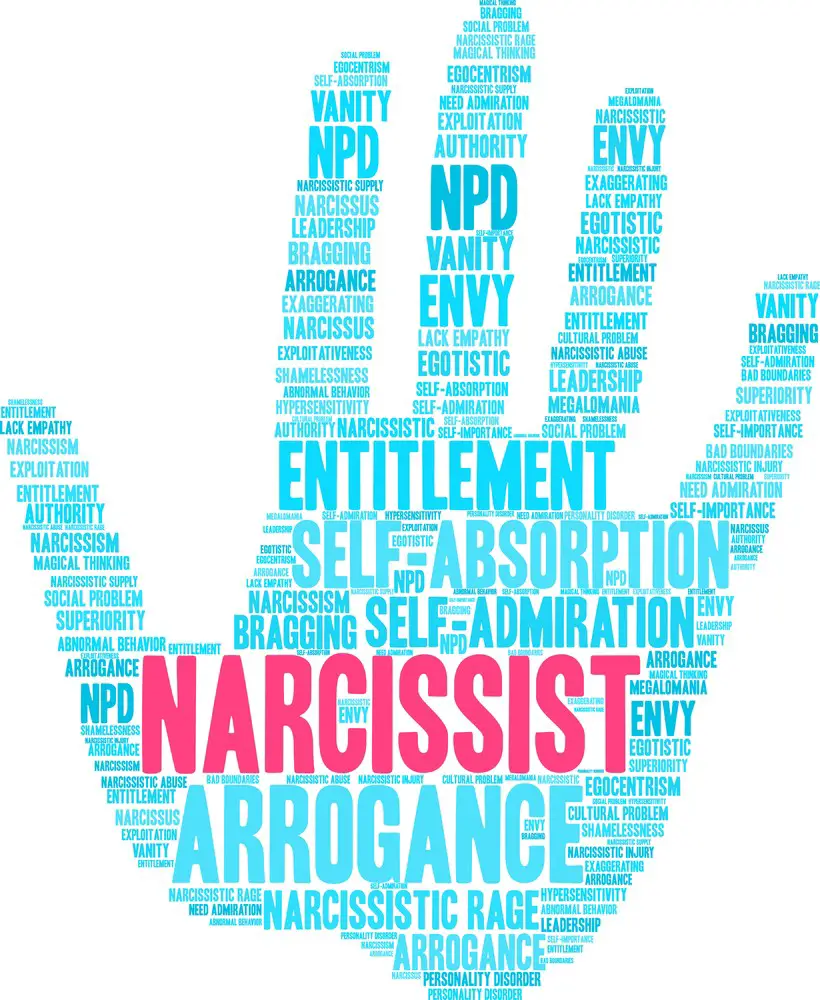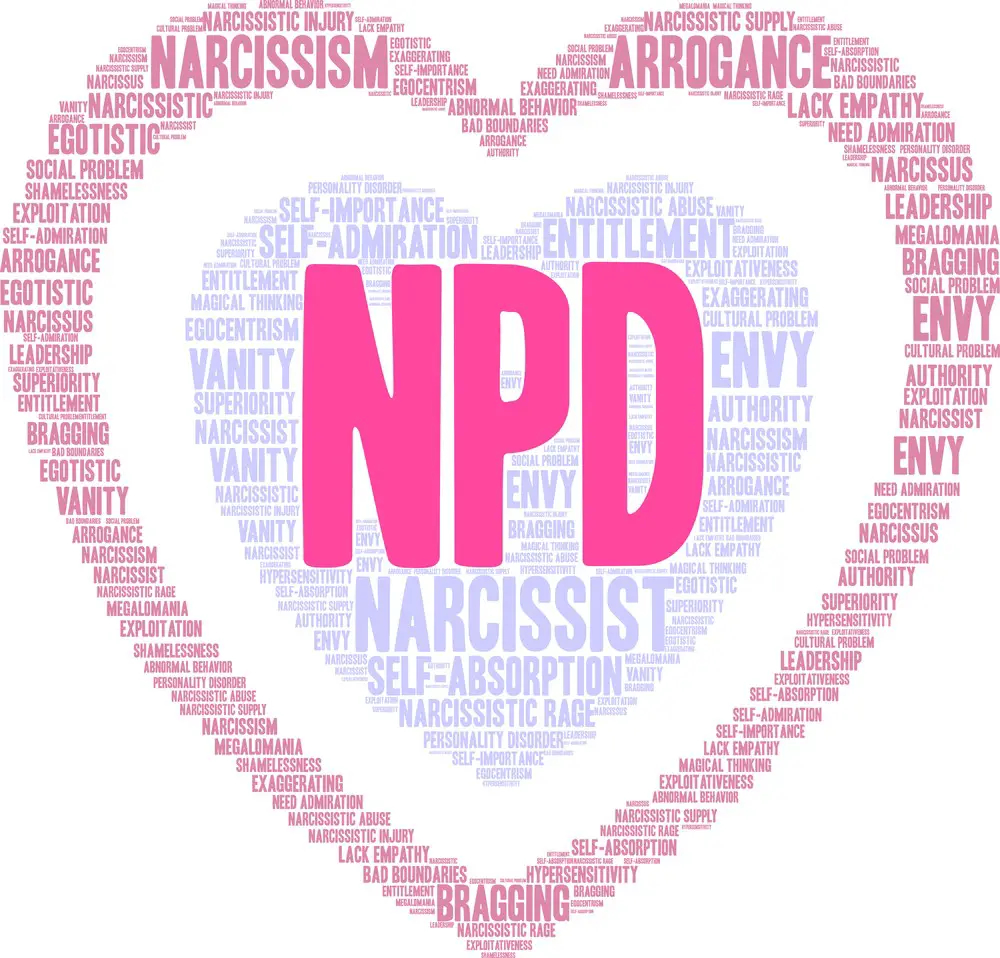As a BetterHelp affiliate, we receive compensation from BetterHelp if you purchase products or services through the links provided
Surviving narcissism can be incredibly challenging and complex for individuals in relationships with narcissistic partners, family members, or friends. To navigate these relationships and foster healing and growth, it is crucial to understand the nature of narcissism, recognize the signs of narcissistic behavior, and learn the most effective coping strategies. By increasing awareness and developing the necessary tools, it is possible to overcome the detrimental impact narcissism has on individuals and relationships.
Narcissism is often rooted in childhood experiences and manifests in various forms, such as entitlement, lack of empathy, and a constant need for validation and admiration. Those involved with narcissists may endure manipulation tactics, gaslighting, and even emotional or psychological abuse. The path to recovery starts with recognizing the red flags, seeking support from professionals and loved ones, and setting firm boundaries to protect one’s well-being.
Key Takeaways
- Surviving narcissism requires understanding its nature and recognizing signs of narcissistic behavior.
- Coping strategies and setting boundaries are essential in navigating relationships with narcissists.
- The path to recovery includes recognizing red flags and seeking support from loved ones and professionals.
 Understanding Narcissism
Understanding Narcissism
Narcissism is a personality disorder characterized by an inflated sense of self-importance, extreme need for admiration, and lack of empathy for others. People with this disorder often exhibit grandiosity and a strong sense of entitlement, making it difficult to maintain healthy personal relationships.
There are two main types of narcissism: grandiose and vulnerable. Grandiose narcissism is marked by excessive self-confidence, assertiveness, and a belief in superiority. These individuals often have an inflated ego and may be prone to displays of arrogance. Vulnerable narcissism, on the other hand, is characterized by a deep sense of insecurity and a strong need for validation from others. People with vulnerable narcissism may become anxious or defensive when they perceive any slight criticism.
The Diagnostic and Statistical Manual of Mental Disorders, Fifth Edition (DSM-5), classifies narcissism as a personality disorder within the cluster B group, which includes disorders such as borderline, antisocial, and histrionic personality disorders. According to the DSM-5, the criteria for diagnosing narcissistic personality disorder include a persistent pattern of grandiosity, a strong need for admiration, and a lack of empathy that begins by early adulthood and is present in various contexts.
Some common signs and symptoms of narcissism include:
- A sense of entitlement and the expectation of special treatment
- Exaggerating personal achievements and talents
- Believing that they are unique and superior to others
- Needing constant praise and admiration from others
- Exploiting others for personal gain or self-gratification
- Showing a lack of empathy towards others and an unwillingness to recognize or acknowledge the feelings and needs of others
- Being preoccupied with fantasies of unlimited success, power, or beauty
It is important to note that narcissistic traits can be present in varying degrees, and not everyone who exhibits some of these behaviors necessarily has a narcissistic personality disorder. Understanding narcissism is crucial for recognizing its effects on individuals and their relationships and seeking appropriate treatment and support for those affected by this disorder.
 Identifying a Narcissist
Identifying a Narcissist
A narcissist is an individual who exhibits an excessive sense of self-importance, grandiose behavior, and an insatiable craving for admiration. Identifying narcissists can be challenging, as their traits often hide beneath a charismatic and charming façade. However, understanding their patterns and behaviors can enable one to recognize the signs of narcissism.
Narcissists possess a strong sense of arrogance and entitlement. They believe they are superior to others and can display a condescending attitude toward people they perceive as inferior. This arrogance may manifest in various aspects of life, including personal relationships, work, and social interactions.
Selfishness is another common trait among narcissists. They appear to be solely focused on their desires and goals, often at the expense of others. This selfishness extends to their inability to empathize with the feelings and needs of others, making it difficult for them to maintain healthy and genuine relationships.
Culture and religion may influence the manifestation of narcissistic traits, as narcissists may misinterpret or manipulate certain values or beliefs to justify their behavior. However, narcissism transcends cultural and religious boundaries, affecting individuals across different societies and belief systems.
In conclusion, identifying a narcissist may not be straightforward, given their deceptive nature and charming exterior. However, paying close attention to their behavior patterns, such as grandiose tendencies, arrogance, selfishness, and the influence of culture or religion, can help them recognize and deal with narcissistic individuals. Understanding these traits is crucial for protecting oneself and maintaining healthy relationship boundaries.
 Classic Narcissistic Behaviors
Classic Narcissistic Behaviors
Narcissists display a range of behaviors that can be detrimental to those around them. One common trait is manipulation, where they may attempt to control others using tactics such as guilt-tripping or playing the victim. This is often done to achieve their desired outcome without considering the feelings or well-being of others.
Gaslighting is another classic narcissistic behavior. This involves the narcissist causing a person to doubt their emotions and perceptions by denying or distorting reality. It is a subtle form of psychological abuse that can result in confusion, anxiety, and a loss of self-esteem for the victim.
Narcissists are also known for their rage and passive-aggressive behavior. They have a low tolerance for criticism and often react with anger or aggression when faced with perceived threats to their self-image. This can be verbal or emotional outbursts or passive-aggressive tactics such as silent treatments or backhanded compliments.
Deception is another typical narcissistic trait. They commonly lie or create false illusions to maintain their sense of importance or protect their fragile ego. By portraying themselves as more successful or accomplished than they truly are, they try to build up their image in the eyes of others.
Narcissistic behaviors can seriously affect the self-esteem of those who fall victim to them. The constant manipulation and deceit can lead to a person doubting their worth and abilities, potentially causing long-lasting emotional damage.
Narcissists often employ abuse tactics to maintain power and control in their relationships. These can include belittling, isolation, guilt-tripping, and emotional blackmail. These tactics can be subtle and hard to recognize, but they contribute to a toxic and unhealthy dynamic in any relationship.
It is important to be aware of these classic narcissistic behaviors to recognize them and protect oneself from the potentially damaging effects they can have.
 Narcissistic Relationships
Narcissistic Relationships
Narcissistic relationships can be challenging and emotionally draining for the people involved. A connection with a narcissist often involves manipulation, control, and a lack of empathy from one partner, causing significant distress for the other.
A narcissist may appear charming, charismatic, and attentive in dating. They might shower their partner with affection and gifts, making them feel like the most important person in the world. However, this is often just a lure, and the narcissist’s true colors may not become apparent until later in the relationship.
Once a relationship with a narcissist becomes more established, the dynamics can change dramatically. Their partner may find themselves the subject of criticism, belittlement, or even outright hostility. Narcissists tend to put their needs and desires above their partner’s, demonstrating little regard for their feelings or well-being.
Being in a relationship with a narcissist can involve a variety of challenges, such as being blamed for the narcissist’s actions, having personal boundaries disregarded, and feeling isolated from friends and family. A narcissist may also try to control their partner’s life, dictating where they go and with whom they interact.
Dealing with a narcissistic relationship can have long-lasting effects on the partner’s mental and emotional health. It can lead to feelings of self-doubt, depression, and anxiety. Recognizing the signs of a narcissistic relationship is crucial for protecting oneself and possibly moving towards a healthier and more supportive connection.
When married to a narcissist, the challenges can intensify. Divorce and custody battles may become highly contentious, as narcissists may use every tactic to win at all costs. Seeking professional help, including therapy and legal assistance, is recommended for navigating these complex situations.
In short, narcissistic relationships can be emotionally damaging and psychologically distressing for the partner involved. Recognizing the signs and seeking help are crucial steps towards protecting oneself and moving towards healthier, more supportive connections.
The Narcissist’s Partner
The narcissist’s partner often finds themselves in a challenging position. They are typically the victim in the relationship, as the narcissist seeks to control and manipulate them for their gain. These partners may deeply crave loyalty and understanding, but they often experience disappointment when they realize that the narcissist cannot provide these things.
Initially, the partner may be drawn to the narcissist due to the illusion that they have found someone strong, charming, and confident. However, the reality of the narcissist’s true nature soon becomes apparent, as they cannot maintain the façade for an extended period. The partner experiences a sense of disillusionment and betrayal, feeling emotionally drained and unheard.
It can be challenging for the narcissist’s partner to break free from this toxic dynamic, as they may develop Stockholm Syndrome. This phenomenon occurs when the victim starts to identify with and become attached to their abuser. Victims may even feel a sense of loyalty and protectiveness towards their narcissistic partners, completely blind to the harm being done to them.
To survive narcissism and protect oneself from future emotional harm, the narcissist’s partner should consider taking the following steps:
- Establish boundaries: Learning to set and maintain healthy boundaries is crucial in navigating a relationship with a narcissist. This can include defining what behavior is acceptable and unacceptable and clarifying the consequences if these boundaries are not respected.
- Seek support: Connecting with friends, family, or professional therapists can provide a crucial support network and help alleviate feelings of isolation. Sharing one’s experiences might also help recognize the relationship’s destructive patterns and gain insights on how to address them.
- Cultivate self-compassion: Practicing self-compassion is essential in boosting self-esteem and learning to prioritize one’s well-being. This might involve acknowledging personal feelings, addressing negative self-talk, and engaging in self-care activities.
- Create an exit plan: If the relationship has become unbearable, having a plan in place to leave safely and efficiently is key. This can include gathering important documents, building financial independence, and establishing a new support system.
The partner can make informed decisions to protect their mental and emotional well-being by understanding the dynamics in a relationship with a narcissist. The process of healing and rebuilding one’s life after a toxic relationship may be challenging, but it is achievable with the right tools and support.
Coping and Setting Boundaries
Surviving narcissism involves understanding and implementing strategies related to coping and setting healthy boundaries. Being confident and knowledgeable about these strategies allows individuals to maintain a neutral and clear state of mind when dealing with a narcissist.
The first step in coping with narcissists is to establish firm boundaries. Setting boundaries helps protect oneself from the manipulative tactics and excessive control that narcissists often exert. It is important to be direct and assertive when discussing boundaries and expectations without engaging in confrontation. Communicating one’s needs is paramount to maintaining a healthy distance from a narcissist.
Empathy plays an essential role in understanding the narcissist’s perspective. Learning about narcissistic personality traits can help one recognize patterns and respond effectively. This understanding also fosters consideration for the narcissist’s challenges without condoning their harmful behavior.
Taking the time to learn and reflect is crucial for personal growth and resilience. Seeking support from friends, family, therapists, or support groups allows individuals to share their experiences and develop better-coping mechanisms. Knowledge is power, and understanding narcissistic relationships can help prevent future entanglements.
It is important to remember that confronting a narcissist may not result in positive outcomes and should be cautiously approached. Avoid controlling or changing the narcissist, as it typically fuels their desire for power and control. Instead, focus on personal well-being and preserving a sense of self.
In conclusion, when dealing with a narcissist, establishing healthy boundaries, embracing empathy, and engaging in self-reflection are crucial aspects of coping and managing the relationship. Maintaining a neutral, knowledgeable, and confident demeanor ensures preserving personal integrity.
The Effect on Children
Children exposed to narcissistic parents may experience a range of emotional and psychological challenges. The narcissistic parent’s lack of compassionate, supportive, and kind behavior can leave children feeling unloved and confused. Often, these children are unaware that their parent’s behavior is not healthy or normal.
Being raised by a narcissist can profoundly impact a child’s mental health and self-esteem. Children may be accustomed to the parent always prioritizing their needs over their child’s. This can lead to feelings of unworthiness and neglect. Moreover, children raised in such an environment often struggle to establish healthy relationships as adults, given that their upbringing has skewed their perception of what constitutes a healthy relationship.
Children must have a support system, whether through relatives, teachers, or friends, to combat the negative effects of narcissism in their development. Children can learn to develop resilience and healthy coping mechanisms by providing a stable and nurturing network of individuals. In turn, they may develop into individuals capable of forming positive, compassionate relationships.
In summary, the effect of narcissism on children can lead to a range of psychological challenges as they grow and develop. These individuals must surround themselves with supportive and compassionate people to combat these negative experiences and build resilience toward a healthier future.
 Navigating Therapy and Counseling
Navigating Therapy and Counseling
Navigating therapy and counseling can be an essential aspect of surviving narcissism. It is crucial to find a professional who is knowledgeable about narcissistic behavior and able to support the patient in understanding and healing from its aftermath.
In therapy, the patient can work to gain clarity about the dynamics of their relationship with a narcissist. A skilled counselor will guide them in identifying destructive patterns, establishing boundaries, and learning effective communication strategies to manage these relationships.
Grieving the loss of the relationship or the person they believed the narcissist to be is essential to the healing process. Therapy can provide a safe space for expressing and processing the complex emotions of grieving, such as sadness, anger, and guilt. This emotional work can increase self-awareness, resilience, and personal growth.
Additionally, therapy can also help the patient develop essential self-care practices. This may include cultivating a support network, maintaining a healthy lifestyle, practicing stress management techniques, and prioritizing their needs. In doing so, they can regain control, self-worth, and independence, which may have been eroded during their time with the narcissist.
Patients need to remember that progress in therapy is not linear. They may experience setbacks and challenges along the way, but with persistence and support from a knowledgeable counselor, they can ultimately achieve meaningful and lasting change in their lives.
 Understanding Narcissistic Abuse
Understanding Narcissistic Abuse
Narcissistic abuse occurs when someone with a narcissistic personality disorder (NPD) or traits exerts control and manipulation over others. This abuse can manifest in various ways, including cruelty, intimidation, and different tactics to maintain power.
Narcissists typically crave validation and admiration from others, and when they do not receive it, they can resort to chronic abusive behavior. Understanding the different types and signs of narcissistic abuse is crucial in recognizing the pattern and protecting oneself.
One form of narcissistic abuse is emotional cruelty. The narcissist may belittle, humiliate, or put down their target, leading to increased feelings of worthlessness and self-doubt.
Intimidation is another common tactic of narcissistic abuse. The abuser may threaten their victim, directly or indirectly, to coerce them into submitting to their demands. By making others feel fearful or powerless, the narcissist maintains control.
A covert narcissist may appear outwardly empathetic, but their behavior is subtly manipulative. They use tactics like playing the victim, guilt-tripping, and acting as if they are doing good deeds for their target. These actions work together to create a sense of indebtedness and loyalty.
It is essential to note that not all cases of narcissistic abuse involve physical or overt domination. Sometimes, the abuser takes a more covert approach to exert control, which can be even more challenging to recognize and address.
Victims of narcissistic abuse often face long-lasting emotional and psychological harm. Identifying the tactics utilized by a narcissist is the first step to healing from such traumatic experiences. Armed with this knowledge, targets of narcissistic abuse can protect themselves and seek the assistance they need to overcome the damaging effects of this malicious behavior.
Recognizing Red Flags
One must first recognize the red flags that signal narcissistic behavior to survive narcissism. Awareness of these warning signs can help individuals protect themselves and maintain healthy relationships.
One red flag is when a person constantly seeks praise and admiration from others. Narcissists need validation and can become overly reliant on external sources for their self-esteem. They may frequently fish for compliments and become upset when they do not receive the recognition they believe they deserve.
Manipulation is another common trait of narcissists. They may use various tactics to control and influence others, such as guilt-tripping, gaslighting, or making threats. Narcissists may also refuse to take responsibility for their actions, shifting blame to others instead.
It is important to recognize that narcissism exists on a spectrum. Not all individuals displaying these red flags have a narcissistic personality disorder, but awareness of these behaviors can help identify potentially harmful relationships and make informed decisions.
Some individuals may also lack empathy for others, focusing solely on their needs and desires. They can dismiss other people’s emotions and show little interest in their well-being.
Lastly, be mindful of control issues and boundary violations. Narcissists often seek to control all aspects of a relationship, including the other person’s time, activities, and emotional support. They may disregard personal boundaries and demand constant attention, leaving little room for independence within the relationship.
Recognizing these red flags is a crucial step in surviving narcissism and fostering healthier relationships in the future.
 Path to Recovery and Healing
Path to Recovery and Healing
Embarking on the healing journey from narcissistic abuse can be challenging, but it is crucial to regaining one’s sense of self-worth and emotional well-being. To begin this process, it’s important to acknowledge the disillusionment that comes from realizing that the admiration and energy once given to the narcissist was used for their gratification rather than nurturing a healthy, mutual relationship.
As individuals take the first steps towards healing, it’s essential to establish firm boundaries with the narcissist, whether they are still present in their lives or not. This might involve limiting or ceasing contact, resisting attempts at manipulation, and reinforcing a commitment to personal growth and self-care.
A valuable tool during the healing process is the practice of self-reflection. As survivors work through the emotional turmoil caused by living with a narcissist, they are encouraged to identify and understand their emotions, including any tendencies to seek validation from the narcissist or others. By developing self-awareness, individuals can dismantle patterns of seeking external validation and focus on cultivating inner confidence and self-empowerment.
In addition to self-reflection, rebuilding a support network of trusted friends and family members who can offer understanding, encouragement, and validation is essential. Participation in support groups and counseling can provide essential resources for rebuilding confidence and learning effective strategies for healthy interpersonal relationships. By connecting with others who have experienced narcissistic abuse, survivors can gain reassurance and motivation, knowing they are not alone on their path to healing.
With patience, determination, and self-compassion, those who have lived with a narcissist can slowly begin to rediscover their sense of self-worth and heal from the damage caused by narcissistic abuse. Although the journey may be challenging at times, the resilience of the human spirit prevails, paving the way toward a brighter, more fulfilling future.
Frequently Asked Questions

How can one cope with a narcissistic parent?
One can cope with a narcissistic parent by setting boundaries and practicing self-care. It’s essential to prioritize your emotional and mental well-being. Additionally, seeking therapy or joining support groups for survivors of narcissistic parents may provide guidance and a sense of community.
What are effective strategies for dealing with narcissists?
Effective strategies for dealing with narcissists include setting boundaries, maintaining emotional distance, and focusing on facts instead of feelings. Avoid getting caught in their manipulation tactics and try not to take their actions personally. In some cases, limiting contact or seeking professional guidance may be necessary.
Can a narcissist change and heal?
Although it’s challenging for a narcissist to change and heal, it is possible with professional help and commitment to change. However, it’s essential to understand that the process may take significant time and emotional effort, and the narcissist must be willing to engage in this process genuinely.
Do narcissists become worse with age?
Narcissists may worsen with age due to an increased sense of entitlement and vulnerability. As they age, narcissists can face cognitive decline, leading to an increased need for support and validation. This increased need may exacerbate their narcissistic tendencies. However, it’s important to recognize that this isn’t always the case; everyone is different.
What are the potential outcomes for a narcissist’s life?
Potential outcomes for a narcissist’s life may include strained relationships, social isolation, and difficulty maintaining personal and professional connections. They may struggle to form strong bonds and alienate those around them. In some instances, narcissists may also face mental health challenges or addiction due to their behavior.
Is it possible to maintain a healthy relationship with a narcissist?
Maintaining a healthy relationship with a narcissist can be challenging due to their emotional manipulation and lack of empathy. However, setting strict boundaries and openly communicating your needs can help. It’s essential to prioritize your mental health and seek support from a professional if necessary. Remember that the narcissist must be willing to work on their behavior for the relationship to succeed.
About Me
As someone who has survived the effects of narcissism in a difficult custody battle, I understand the importance of resilience and perseverance in challenging circumstances. While I take Lexapro to manage my mental health, I’ve also learned strategies for coping with the harmful effects of narcissistic behavior and protecting myself and our children.
Despite the ongoing court battle with my ex-partner’s severe case of narcissism and her complete alienation from our children, I remain committed to fighting for their well-being and doing what I can to manage my mental health. I take long walks daily to clear my head and focus on what’s important.
To provide support and guidance to others who may be facing similar challenges, I write articles about mental health and narcissism. I also have a legal site where I help others dealing with a spouse who refuses to comply with court orders and weaponizes their children rather than co-parenting. I hope to provide resources and strategies for surviving narcissism and navigating difficult relationships, whether it be through legal action or personal growth and healing. With the right support and resources, anyone can overcome their mental health challenges and find a path toward healing and recovery. – Jacob Maslow
- 3 Ways Wearing a Hat Can Help Lower Your Stress Levels - April 19, 2025
- Breaking the Silence: Why Men’s Mental Health Matters More Than Ever - April 15, 2025
- How to Transform a Home’s Patio Space into a Relaxing Space - March 23, 2025
This site contains affiliate links to products. We will receive a commission for purchases made through these links.


 Understanding Narcissism
Understanding Narcissism Identifying a Narcissist
Identifying a Narcissist Classic Narcissistic Behaviors
Classic Narcissistic Behaviors Narcissistic Relationships
Narcissistic Relationships
 Navigating Therapy and Counseling
Navigating Therapy and Counseling Understanding Narcissistic Abuse
Understanding Narcissistic Abuse Path to Recovery and Healing
Path to Recovery and Healing

